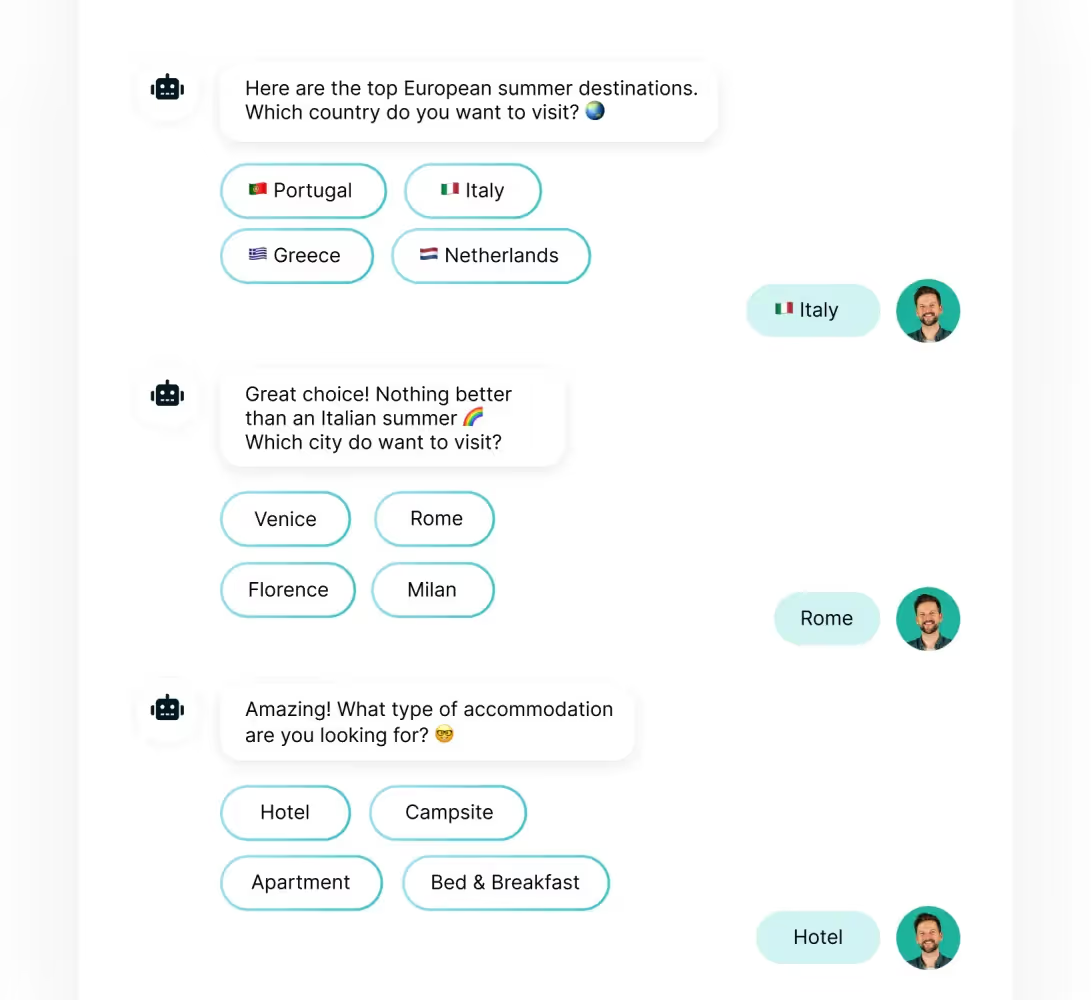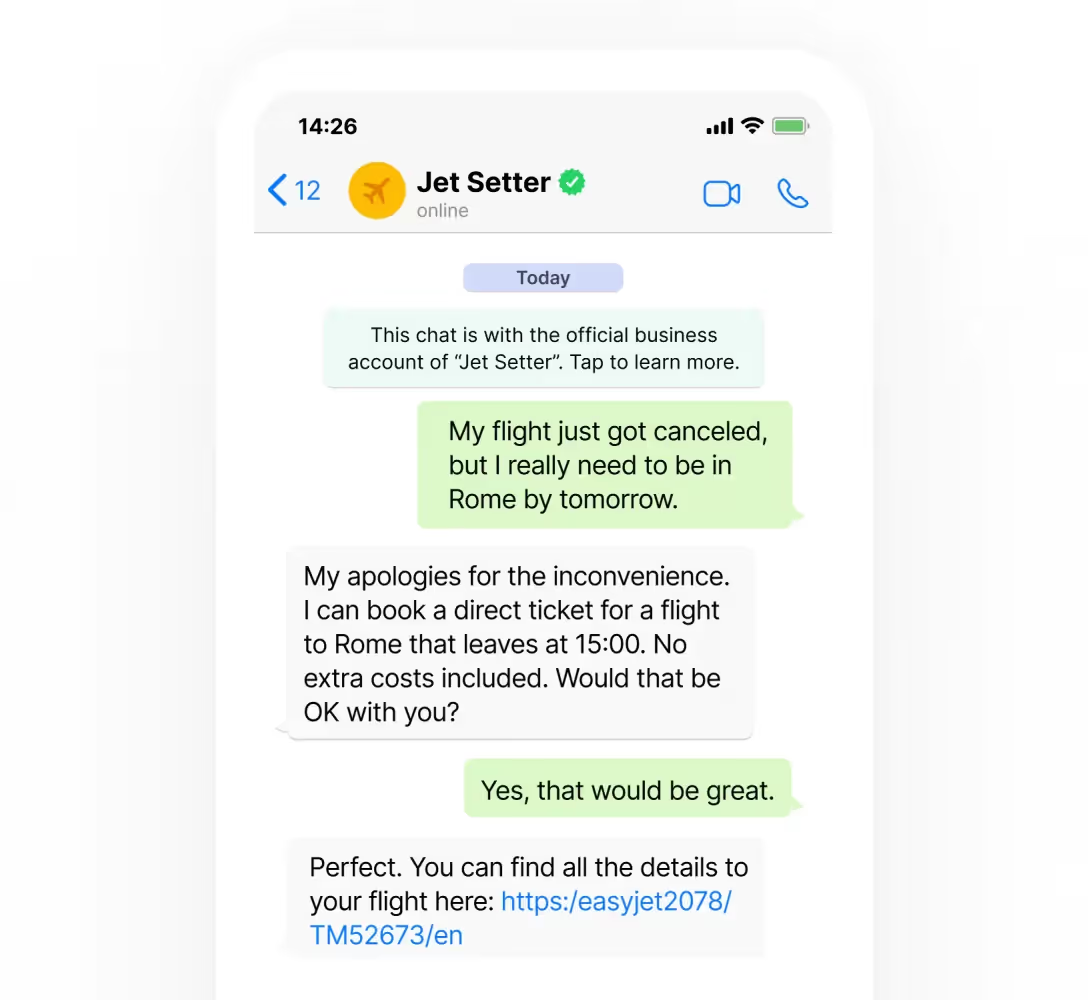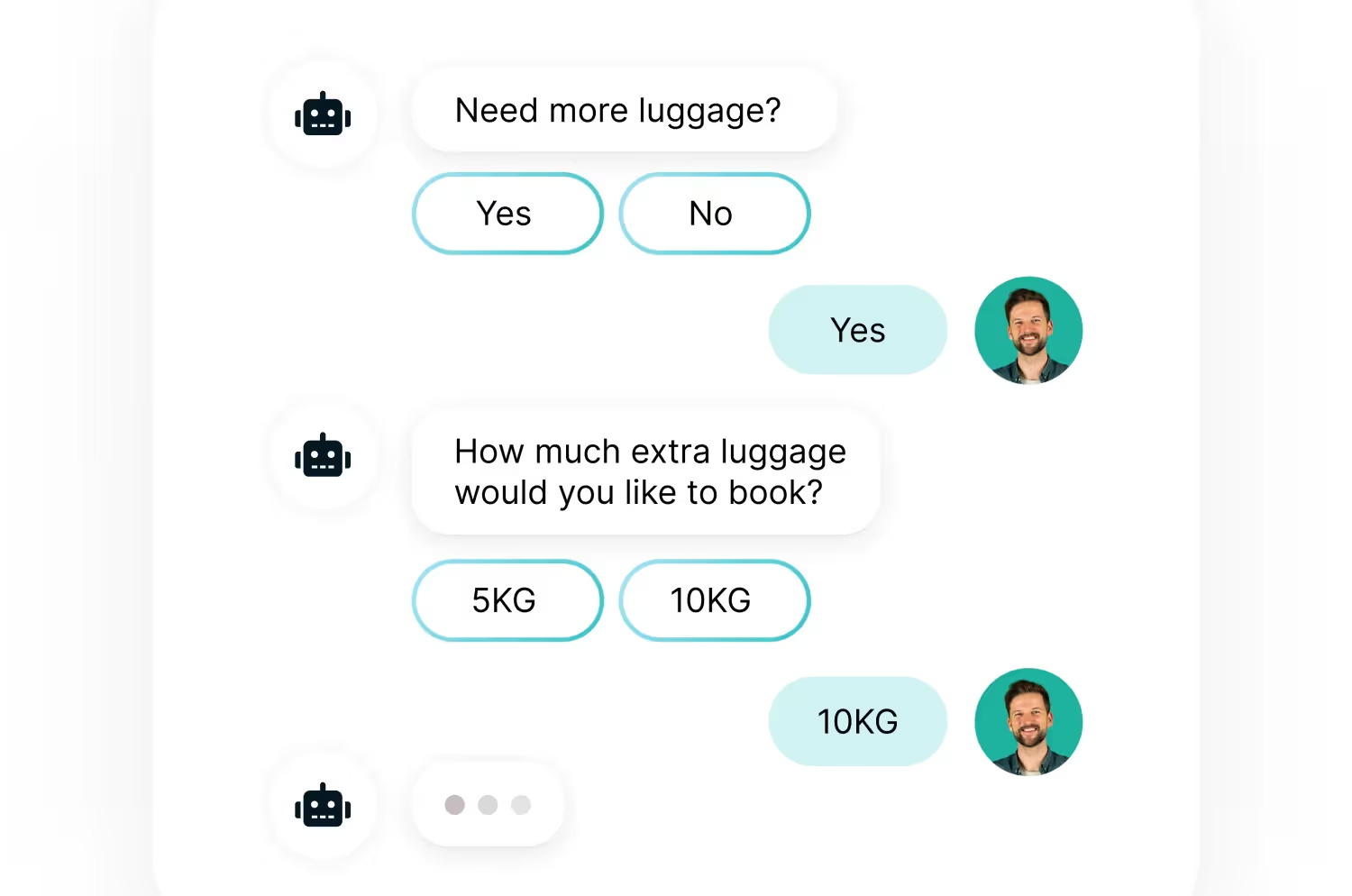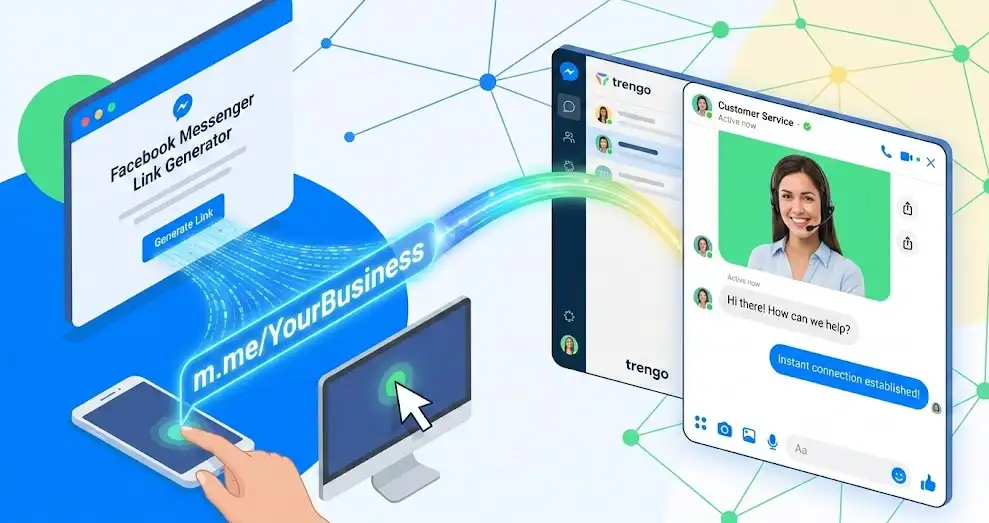Traveling can be a stressful experience.
“Did we reserve a parking spot? Did we print our boarding passes? I should check if the flight has been delayed. Argh, I forgot my toothbrush!”
It’s not unusual to think all the above thoughts in a matter of minutes when you’re traveling. There is so much you need to think about that things can get overwhelming quickly. Good communication from your travel agency or accommodation can either make or break the entire experience.
This means the travel and tourism industry constantly has to look for ways to improve the way they communicate with customers. One of the first (and most important) steps in that process is adopting the right communication channels. Meaning, the channels consumers actually use themselves. Not the channels businesses are making them use, such as email, live chat, or a contact form (yikes).
And with more than two billion active users worldwide, the channel that is taking flight most in the travel industry (pun intended) is WhatsApp. Think about it, when you land after a flight and finally take your phone off of airplane mode, what’s the first channel you check? Exactly. That’s where your business should be too.
This article will explore creative ways in which businesses in the travel industry can use WhatsApp to offer experiences that fit exactly what the modern consumer expects from them.
Help customers find the destination of their dreams
Your customer’s journey starts once they begin to look for a destination. From the get-go, there are a lot of decisions to be made.
- Which country would you like to go to?
- Which city?
- Second or first class?
- Hotel or campsite?
And the list goes on.
Most people don’t mind making all these decisions by themselves on a website. But there are also a lot of consumers who still like to get one-to-one advice. It’s why so many travel agencies still have physical locations. What if you brought that experience online with WhatsApp?

By using Trengo’s flowbot, you can automate WhatsApp conversations with multiple-choice questions. This way, your customers will be able to narrow down their traveling options right within their favorite app. If they need some more personal advice after that, your human agents will already have a lot of information to work with.
With the basic information the bot has gathered, it forwards customers to the agent with the right expertise. If a customer picks Italy as their country of destination, Trengo automatically forwards them to your Italy expert.
Note: if setting up a bot sounds like a headache: it isn’t. With Trengo, you can create a bot with an easy-to-use no-code tool.
Learn more about setting up a flowbot here.
Deliver real-time updates on your customer’s phone
After your customer has booked their trip, they will expect some important messages to show up in their inbox. Think order confirmation, payment requests, and boarding passes. But also reminders to bring your passport, real-time updates on when the hotel room is ready, or a note about what clothing the tour guide will be wearing at the meeting spot for the day. The options are endless to make the customer experience as comfortable as possible.

Currently, businesses still send these messages via email. But with Trengo, you can also send these updates via WhatsApp. This means you can bring the entire customer journey to WhatsApp — from human support to automated updates.
A great example of a company that was an early adopter of sending travel updates via WhatsApp Business is airline KLM. They use the messaging app to send boarding passes, status updates, gate assignments, and more. They even inform family and friends about flight arrivals.

Manage requests in a way that doesn’t frustrate customers
Customers that want to select a seat, change rooms, arrange an early check-in or make a cabin upgrade often have to jump through multiple hoops to do so. Go to the website, log in to their account (of course they first have to reset the password they forgot to write down), find the right page, get very frustrated in the process, give up and call customer service for help.
We’ve all been there.
Most customers just want to reach out to a human and have them arrange it for them. But often they get forwarded to a website after waiting in an online waiting line for 30 minutes. Efficient for the travel agency? Maybe. Terrible experience for the customer? Best believe it.
By using Trengo, you can manage these requests via WhatsApp. Simply create a bot or auto-reply that asks your customer to describe their wishes. Your team can then handle all the requests when they have the time to do it and update your customers when it’s done.

Offer the fast and efficient support your customers need
Like I said, traveling can be stressful. Especially when things go wrong. When a flight gets canceled, your customer will want to get support fast.
WhatsApp is a great medium to offer support in challenging times, as it enables your team to manage multiple ongoing conversations at the same time with acceptable speed. That would be impossible via phone.

To make things even easier for your support team, you can use Trengo to automatically answer all the frequently asked questions with bots or quick replies. This way, your human agents will have the time they need to manage the more challenging cases.
A great example of a business that uses WhatsApp to support its customers is Ferryscanner. They have fully abandoned their call center, meaning customers can only reach them via messenger apps, such as WhatsApp and Google’s Business Messages. All the conversations from different channels are managed in Trengo, so they can keep a clear overview of every case.
They use Trengo’s flowbot to first ask every customer some basic questions. With this info, their support team can offer personalized support right away.
Read more about how Ferryscanner uses WhatsApp.
Conversational cross-selling and up-selling
For marketers, selling a product is just the beginning. From there, it’s time to see if there are more ways you can make customers happy. This can be done by cross-selling and up-selling.
Sounds easy, but there’s an art form to it. The more personalized your message is, the better your chances of sealing the deal. Pop-ups and automated emails worked in the past, but now customers almost instinctively ignore them.
B with our new WhatsApp Broadcasting feature, you can now send these messages via WhatsApp instead. Here are a couple of examples for inspiration:
- Add extra luggage. A day before your customer starts their trip, they’ll most likely be packing. This is the perfect moment to ask them if they have enough room in their suitcase or if they would like to purchase more.
- Upgrade to first class. Have some spots left in first class? There’s no harm in asking if customers would like to upgrade their second-class ticket right before the airplane takes off. You could even offer a discount.
- Book luxury services. While the customer is enjoying their stay at your hotel, they may be open to some extras. Why not invite them to work out in your gym or enjoy an afternoon in your sauna?

Try out Trengo for free
The bar for what a good customer experience looks like has never been higher. Businesses have to offer fast and personal service on the channels your customers love to use. And WhatsApp is most likely their favorite one.
With Trengo, you can create top-notch customer experiences on all your customer’s favorite online channels.




.png)











